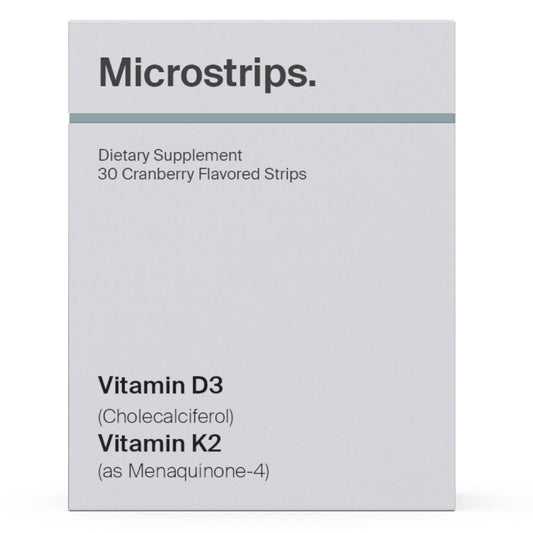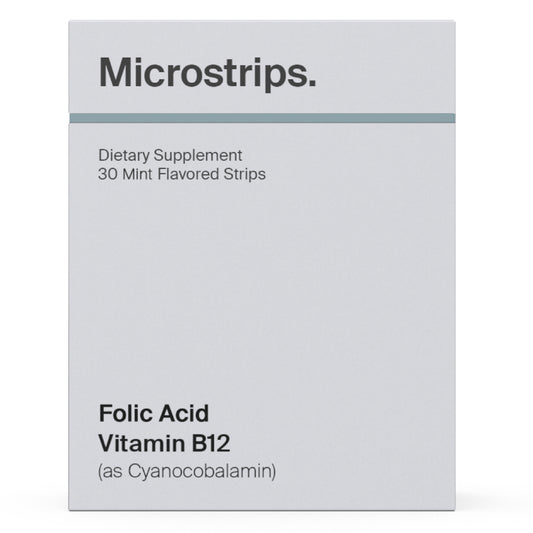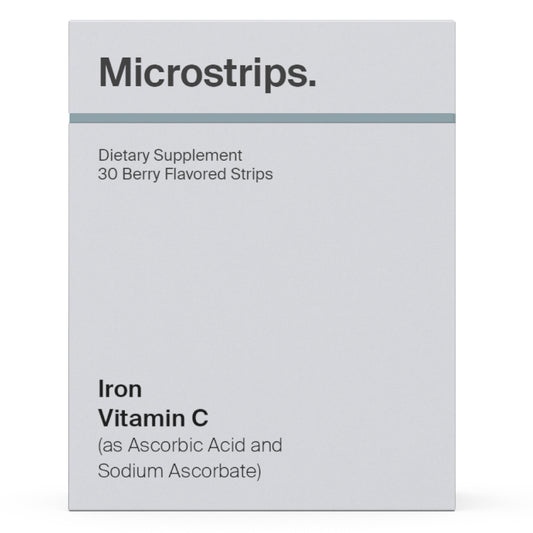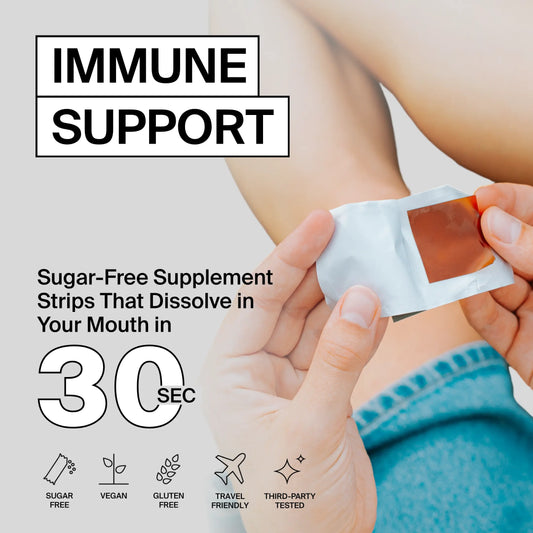Navigating the healthcare system can be exhausting, with endless blood tests, back-and-forth consultations, and conflicting advice. The constant juggling act between personal and professional life, all while contending with societal expectations, can feel debilitating. On top of this, the systemic gaps in women's health equity often leave you feeling like your concerns are unheard and your needs unmet.
This guide is designed to offer you 25 science-backed steps to support your fertility journey, rooted in the principles of metabolic health. While no single approach can guarantee results, we believe in empowering you with actionable strategies to take control of what’s within your reach. From optimizing insulin sensitivity to making small, sustainable dietary changes, these steps aim to support not only your fertility but also your overall well-being.
Embarking on this journey is deeply personal and unique to every person. This is your choice, your body, and your journey—no one else’s. If you ever feel societal or external pressures and are unsure about what steps to take, it’s important to seek support. There are organizations, counselors, and trusted healthcare professionals you can talk to who specialize in providing non-judgmental advice. For people in the USA, organizations like Resolve: The National Infertility Association provide resources, support, and connections to trusted professionals who can guide you through your journey. Remember, you are not alone, and help is always available.
25 Steps as You Start Your Fertility Journey
1. Understand Your Cycle
Understanding your menstrual cycle is foundational to identifying your fertile window, typically around ovulation. Ovulation generally occurs 14 days before your next period, but this can vary. Tracking methods such as basal body temperature (BBT) monitoring, ovulation predictor kits (OPKs), and cycle-tracking apps can provide accurate insights.
Actionable Tip: Use tools like the FDA-approved Clearblue Digital Ovulation Test, which detects hormone levels in urine to pinpoint ovulation with up to 99% accuracy. Combining this with BBT tracking can give a comprehensive view of your cycle. For more information, visit resources like the Office on Women's Health.
2. Stabilize Blood Sugar
Stable blood sugar levels are crucial for managing insulin resistance, which can impact ovulation and hormone balance. Eating balanced meals with a mix of macronutrients—carbohydrates, proteins, and fats—slows digestion and helps prevent post-meal blood sugar spikes.
Actionable Tip: Pair a complex carbohydrate, like quinoa, with a lean protein, such as grilled chicken, and a healthy fat like avocado. The American Diabetes Association recommends this approach to promote stable glucose levels, which may support improved ovarian function in women with PCOS or insulin resistance.
3. Incorporate Regular Movement
Regular physical activity improves insulin sensitivity and reduces systemic inflammation, both of which play a critical role in metabolic health and fertility. However, avoid over-exercising, as it can increase cortisol levels, disrupting hormone balance.
Actionable Tip: Aim for 150 minutes of moderate exercise per week, as recommended by the CDC. Activities like brisk walking, yoga, or swimming are gentle on the body while promoting metabolic benefits. Consider breaking it into 30-minute sessions five times a week for consistency.
4. Reduce Refined Sugars
Refined sugars in sodas, desserts, and processed snacks cause rapid glucose spikes, leading to insulin resistance over time. Reducing sugar intake can improve metabolic health and support hormonal regulation.
Actionable Tip: Replace sugary beverages with naturally flavored water (e.g., infused with lemon or cucumber) or unsweetened herbal teas. According to the FDA's Nutrition Facts guidance, aim to consume less than 10% of your daily calories from added sugars to support overall health, including metabolic function.
5. Add Omega-3 Fatty Acids
Omega-3 fatty acids reduce inflammation and improve egg quality by supporting cellular function and hormone production. Foods like salmon, walnuts, and flaxseeds are rich sources of these essential fats.
Actionable Tip: Include two servings of fatty fish per week, such as salmon or mackerel, as recommended by the Dietary Guidelines for Americans. For plant-based alternatives, add a tablespoon of ground flaxseed to your morning smoothie or oatmeal to ensure a consistent omega-3 intake.
6. Focus on Fiber
Fiber helps slow the absorption of glucose, promoting stable blood sugar levels essential for hormonal regulation. Soluble fiber in foods like oats and legumes also supports a healthy gut microbiome, which plays a role in metabolic and reproductive health.
Actionable Tip: Incorporate at least 25–30 grams of fiber per day, as recommended by the Dietary Guidelines for Americans. Start your day with oatmeal topped with chia seeds and berries, or include a side of lentils or chickpeas with your meals. Fiber-rich foods also improve satiety, reducing cravings and supporting weight management.
7. Limit Ultra-Processed Foods
Ultra-processed foods often contain added sugars, unhealthy fats, and artificial additives that can increase inflammation and disrupt metabolic health. These foods are linked to insulin resistance and hormonal imbalances, which can interfere with fertility.
Actionable Tip: Prepare meals using whole ingredients like fresh vegetables, lean proteins, and healthy fats. Check labels for hidden additives and prioritize home-cooked meals. According to the FDA, whole foods without excessive processing provide more stable energy and better support for overall metabolic health.
8. Monitor Stress Levels
Chronic stress elevates cortisol levels, which can suppress reproductive hormones like estrogen and progesterone, potentially affecting ovulation. Stress management techniques can reduce cortisol and support a healthier hormonal balance.
Actionable Tip: Practice stress-relieving activities like meditation or progressive muscle relaxation for 10–15 minutes daily. The National Institutes of Health (NIH) highlights mindfulness practices as effective ways to lower cortisol and reduce stress-related hormonal disruptions. Yoga and spending time in nature have also been shown to positively affect mental and hormonal health.
9. Optimize Sleep
Poor sleep can reduce insulin sensitivity and disrupt hormone production, affecting ovulation and overall metabolic health. Consistent sleep patterns are essential for restoring hormonal balance.
Actionable Tip: Establish a bedtime routine to improve sleep hygiene. Avoid screens at least an hour before bed, maintain a dark and cool sleep environment, and aim for 7–9 hours of quality sleep as recommended by the CDC. For women facing sleep disturbances, consult a healthcare provider for further guidance, as addressing sleep disorders can positively impact metabolic and reproductive health.
10. Stay Hydrated
Proper hydration is critical for cellular metabolism, hormonal regulation, and overall reproductive health. Even mild dehydration can impair metabolic functions and reduce energy levels.
Actionable Tip: Aim for at least 8–10 glasses (64–80 ounces) of water daily, or more if you're physically active. The National Academies of Sciences, Engineering, and Medicine recommends using thirst as a guide and adjusting intake based on climate and activity levels. Add lemon or cucumber slices to your water for flavor and additional micronutrient benefits.
11. Eat Consistently
Skipping meals can lead to blood sugar dips and spikes, which can disrupt insulin and hormone levels. Consistent eating patterns provide steady energy and help maintain hormonal balance.
Actionable Tip: Eat balanced meals every 3–4 hours to prevent energy crashes and insulin fluctuations. Start with a nutrient-dense breakfast within an hour of waking, such as whole-grain toast with avocado and eggs. The American Diabetes Association (ADA) emphasizes the importance of consistent meal timing for maintaining blood sugar levels and metabolic health.
12. Explore Anti-Inflammatory Foods
Chronic inflammation can interfere with metabolic health and hormone regulation. Anti-inflammatory foods like turmeric, ginger, and green tea contain bioactive compounds that may help reduce systemic inflammation and support reproductive health.
Actionable Tip: Add a teaspoon of turmeric to soups or smoothies, drink two cups of green tea daily, and incorporate fresh ginger into stir-fries or teas. The National Center for Complementary and Integrative Health (NCCIH) supports the use of these foods as part of a balanced diet to manage inflammation.
13. Get Regular Hormone Testing
Hormonal imbalances in FSH, LH, estrogen, progesterone, and thyroid hormones can impact ovulation and fertility. Regular testing allows healthcare providers to tailor treatment plans and address underlying issues.
Actionable Tip: Schedule an annual hormone panel with your healthcare provider, especially if you have irregular cycles or symptoms of PCOS. The American Society for Reproductive Medicine (ASRM) recommends these tests to assess ovarian function and detect potential issues that may affect fertility.
14. Track Symptoms
Tracking symptoms such as cycle irregularities, energy levels, and dietary changes can provide insights into your overall health. This data helps healthcare providers identify patterns and make informed recommendations.
Actionable Tip: Use a dedicated journal or app to log symptoms daily, including your diet, physical activity, and mood. Apps like Clue or Glow, which are FDA-approved, can simplify tracking and generate useful reports for your healthcare provider. Regularly review your entries to spot trends or triggers.
15. Maintain a Balanced Weight
Excess weight or being underweight can disrupt ovulation and hormone levels, especially for women with PCOS or insulin resistance. A balanced weight supports reproductive health and metabolic function.
Actionable Tip: Aim for gradual weight loss or gain, focusing on sustainable lifestyle changes. Incorporate whole foods, reduce added sugars, and engage in moderate exercise like brisk walking or yoga. The Centers for Disease Control and Prevention (CDC) advises losing 5–10% of body weight to improve metabolic markers and fertility outcomes. Work with a dietitian or healthcare provider to develop a personalized plan.
16. Minimize Environmental Toxins
Hormone-disrupting chemicals (endocrine disruptors) found in plastics, pesticides, and some cleaning products can interfere with hormone balance and reproductive health. These chemicals, like BPA and phthalates, can mimic or block hormones, disrupting normal endocrine functions.
Actionable Tip: Replace plastic containers with glass or stainless steel for food storage, and choose organic produce to reduce pesticide exposure. The Environmental Protection Agency (EPA) recommends limiting contact with endocrine-disrupting chemicals by using certified non-toxic cleaning products and avoiding microwaving food in plastic containers.
17. Evaluate Nutritional Deficiencies
Deficiencies in key nutrients such as vitamin D, iron, and zinc can negatively affect ovulation, egg quality, and hormonal balance. Testing for these deficiencies can help guide targeted interventions.
Actionable Tip: Work with your healthcare provider to test nutrient levels through blood work. Address deficiencies with diet or supplements, such as including iron-rich foods like spinach and lentils or zinc sources like oysters and pumpkin seeds. The National Institutes of Health (NIH) advises daily vitamin D intake of 600 IU for most adults and emphasizes supplementation if levels are insufficient.
18. Be Cautious with Caffeine
Excessive caffeine intake may interfere with fertility by affecting hormone levels and potentially increasing the risk of miscarriage in early pregnancy. Moderation is key to reducing potential risks while maintaining energy.
Actionable Tip: Limit caffeine to 200 milligrams per day (about one 12-ounce cup of coffee), as recommended by the American College of Obstetricians and Gynecologists (ACOG). Substitute with decaffeinated options or herbal teas like chamomile, which promote relaxation and hydration.
19. Identify Food Sensitivities
Certain food sensitivities, such as to gluten or dairy, may cause inflammation or disrupt metabolic health. These sensitivities can worsen symptoms of PCOS or hormonal imbalances, potentially affecting fertility.
Actionable Tip: Consult with a registered dietitian to conduct an elimination diet or use clinical testing to identify food sensitivities. The Academy of Nutrition and Dietetics suggests starting with a two-week elimination phase, reintroducing one food group at a time to observe any reactions. Keep a food journal to track symptoms and refine your dietary approach.
20. Use Science-Backed Supplements
Supplements like inositol, particularly myo-inositol, are well-studied for their role in improving insulin sensitivity and ovarian function in women with PCOS. Vitamin D and omega-3s also contribute to improved reproductive health.
Actionable Tip: Discuss with your healthcare provider whether inositol or other supplements are appropriate for you. Research supports the use of myo-inositol in doses of 2–4 grams daily to improve ovulatory function in PCOS, as noted by the NIH. Always choose high-quality supplements verified by third-party organizations like USP or NSF for safety and efficacy.
21. Advocate for Yourself in Healthcare
Women’s health concerns, particularly those related to fertility, are often underdiagnosed or dismissed. Advocating for yourself ensures that your needs are taken seriously and that you receive comprehensive testing and tailored treatment plans.
Actionable Tip: Prepare for appointments by writing down symptoms, questions, and specific tests you’d like to request (e.g., hormone panels, thyroid function tests). The Office on Women’s Health (OWH) recommends keeping a record of medical visits to track progress and outcomes. Don't hesitate to seek a second opinion if your concerns are not being addressed.
22. Seek Support Networks
The emotional and physical challenges of a fertility journey can feel isolating, but connecting with others who understand can provide comfort and encouragement. Support groups offer shared experiences, coping strategies, and practical advice.
Actionable Tip: Join online forums like those offered by Resolve: The National Infertility Association, which provides access to local and virtual support groups. These networks can help you feel less alone, share resources, and navigate the fertility journey with greater confidence.
23. Minimize Alcohol
Alcohol consumption can interfere with ovulation, disrupt hormone levels, and negatively impact fertility outcomes. Reducing or eliminating alcohol during your fertility journey can support optimal reproductive health.
Actionable Tip: Limit alcohol intake to no more than one drink per day, as advised by the Centers for Disease Control and Prevention (CDC). Consider replacing alcoholic beverages with mocktails or sparkling water infused with fruit to maintain social enjoyment without compromising your health goals.
24. Address Chronic Conditions
Chronic health conditions such as PCOS, diabetes, or thyroid disorders can significantly impact fertility. Managing these conditions with the help of a healthcare provider improves your overall reproductive health.
Actionable Tip: Schedule regular check-ups with specialists, such as endocrinologists, to ensure these conditions are well-managed. The American Society for Reproductive Medicine (ASRM) emphasizes the importance of a multidisciplinary approach to treating underlying conditions that may affect fertility. Keep a clear treatment plan and communicate openly with your care team about your fertility goals.
25. Focus on What You Can Control
Fertility challenges can feel overwhelming, especially when faced with uncertainties. Focusing on actionable steps—like eating balanced meals, staying active, and practicing self-care—can reduce feelings of helplessness and empower you to take charge of your journey.
Actionable Tip: Create a daily or weekly plan with achievable health goals, such as meal prepping, scheduling exercise, or dedicating time to stress-relief activities like reading or meditation. The American Psychological Association (APA) suggests that setting small, manageable goals builds confidence and provides a sense of accomplishment, helping you stay motivated throughout the process.
Closing Note
We understand how overwhelming and debilitating it can feel to navigate the constant stream of advice, new findings, and societal expectations during your fertility journey. It often seems like there’s always something you’re not doing or a new rule to follow, making it feel as though you can’t win no matter how hard you try. On top of that, the pressure to conform to an ideal can be exhausting.
Remember, this is your body, your choice, and your journey—no one else’s. You deserve to make decisions that feel right for you, without guilt or external pressures. If you ever feel overwhelmed, know that you’re not alone, and there are resources and people ready to support you every step of the way. Take things at your own pace, focus on what you can control, and trust yourself to make the best decisions for your health and well-being.













